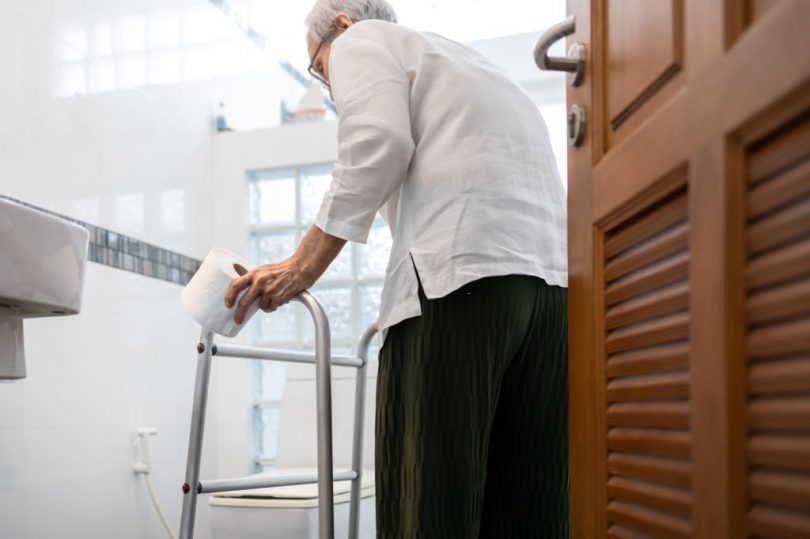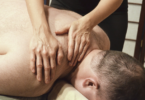We all know how awkward it can be to talk about our bodies. As a culture, we tend to be uncomfortable with the idea of talking frankly about incontinence. Let’s discuss incontinence in the elderly.
People 65 and older often have problems with their bladder or bowels. More than half of those who have these problems say they do. Our elderly incontinence care tips will assist seniors and their caregivers in dealing with the condition with less frustration and cleanup.
Consult A Medical Professional
Contrary to common belief, incontinence does not develop naturally with age. Medical problems that are prevalent and easily treated are typically to blame.
Take your elderly loved one to the doctor if you see indications of incontinence that don’t go away to see whether they have an infection (like a UTI) or anything else that may be treated.
Avoid Certain Drinks And Foods
Are you aware that incontinence may be brought on by consuming certain foods and beverages? Most of these bladder irritants and triggers are entirely unexpected.
- An insufficient amount of liquids
- Substantial Fluid Overload
- Caffeine- and decaffeinated-based coffee, tea, and carbonated beverages
- Oranges, grapefruits, lemons, limes, and other acidic fruits and liquids
- hot sauces
- Alcohol
- Chocolate
- Tomatoes and anything made from tomatoes, including ketchup
- Sweeteners such as sugar, honey, and Splenda
Help your elderly loved one cope with incontinence by recommending that they drink enough fluids and avoid meals and beverages that cause episodes.
Be Consistent With Bathroom Breaks
Dementia and Alzheimer’s patients, in particular, benefit from having a set daily schedule. It’s also helpful for getting their bowel movements and other body processes in sync with regular programs. Your elderly loved one might benefit from being reminded (even if it’s just to “attempt”) to use the bathroom at certain times.
They might begin by going every hour or two. Try different times until you discover the one that suits your body best, and then stick to it. Your senior’s body will adjust to the routine quickly, making accidents less likely.
Waterproof The Mattress, Couch, And Chairs
Elderly incontinence care sometimes encounters difficulties with the cleanup. A stinky accident leaves a stain on your elderly loved one’s clothing and maybe damaged furnishings.
Bedding and clothing may be washed in the machine. But it is hard and tiring to try to clean and deodorize something that can’t be cleaned easily, like a mattress or easy chair. Your senior should waterproof the furniture they use the most to protect it from damage and make it easy to clean.
Gently Use Humor To Ease Tension And Discomfort
The social shame that comes with incontinence is likely to make you and your elderly loved one feel stressed. Tension may be reduced by approaching the situation as if it were routine. Assure them it’s OK and act casually while you wipe up the mess.
It’s easy to reassure someone by saying, “Don’t fret; this is rather common.” Please let me help you shower and change into something more comfortable.
Mild humor may also be used to ease the tension in the aftermath of an accident. Find ways to laugh at yourself and others while maintaining your dignity. You might add, “Now we’ve got the ideal reason to change into your blue jeans.” “You love those!”
Pack An Incontinence kit And Have It Handy.
Even if your elderly loved one has incontinence, it doesn’t mean you must stay all day indoors. Carry a small clean-up kit in a tote bag to respond quickly to emergencies. For this situation, stay in contact with Medical Supply Cary NC.
Choose Clothes That Are Simple To Wash And Change.
A change in clothing to lessen the likelihood of accidents and facilitate incontinence management. Clothing that is difficult to put on and take off could be a safety hazard. Also, they make cleanup a pain.
For instance, an elastic waistband on a pair of trousers makes it simpler and faster to put them on than if they had a conventional zip fly. Your senior may use it to go to the bathroom more quickly, reducing the risk of an accident. And if you’re helping them get dressed or undressed, the elastic waistbands are a lifesaver.
There are many options available in the clothing departments of large department stores. Avoid wearing anything that requires a lot of buttons (no button-fly jeans! ), a complicated clasp, a problematic zipper, or a small opening.
Plus, adaptable clothes made for simple access may be an even better option, depending on your aging loved one’s requirements. Also, many modern designs for clothes that can be changed are slim, quiet, and easy to put on and take off.
Consult with Experts For Assistance
Providing elderly incontinence care on one’s own or in one’s own home may be impossible for many reasons. If this is the case, you may want to get a home health aide to help with things like bathing, dressing, and using the bathroom. Alternatively, consider relocating them to a care facility offering more advanced assistance.








Leave a Comment
You must be logged in to post a comment.